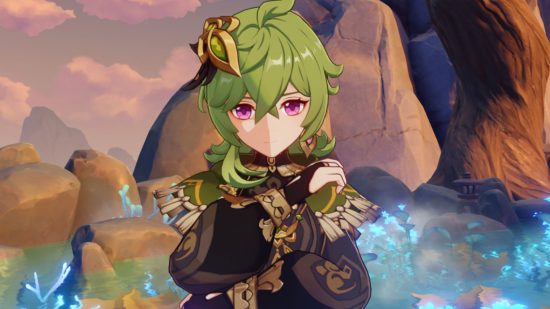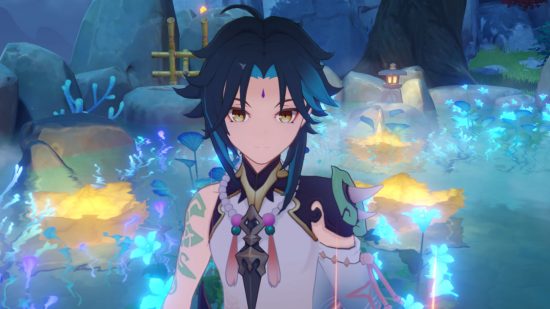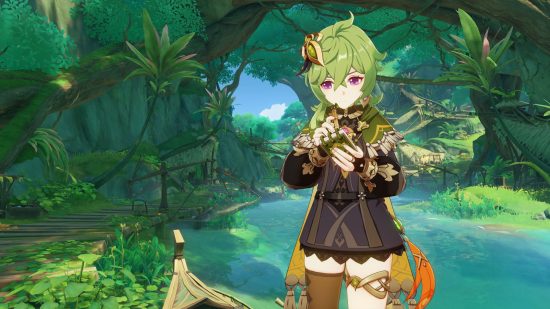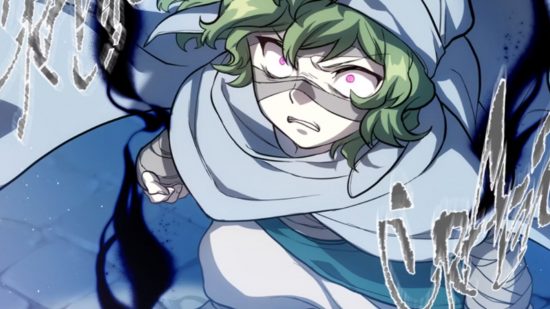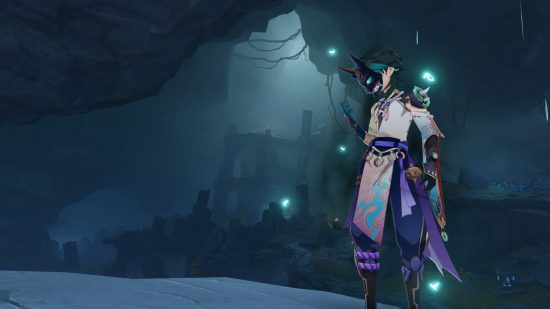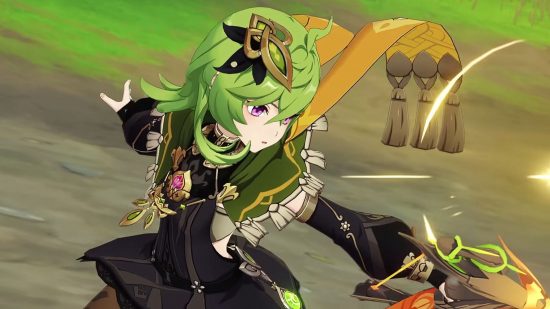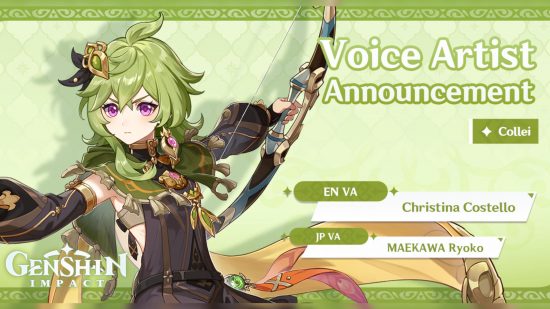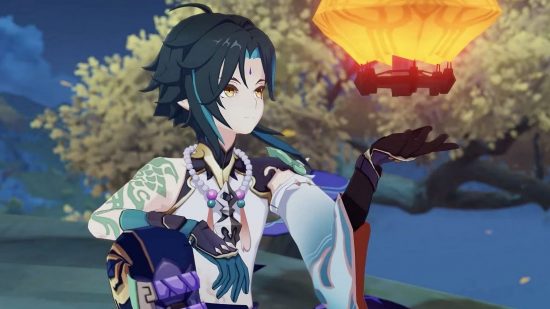As a disabled person who’s had trouble with her health since childhood, gaming has always been an extremely important escape for me. On days when I’ve been in too much pain to leave my bed, delving into a fantastical world where I can do just about anything is an incredibly freeing feeling. However, there’s one prevailing thing that has always niggled away in the back of my mind – the lack of representation of disability in games.
Of course, disabled characters can seem like a tricky thing to tackle when every person has to be able to take on gigantic mechanical monsters and elemental manifestations – how can someone with a fragile heart, an autoimmune disorder, or joints that dislocate when they lift something heavy expect to run around a large open world, tackling baddies and saving the day? At least, that’s how I always felt. Sometimes brushing my teeth seems like too much, so how could I expect to see myself in someone braving the big old world?
That’s why I was pleasantly surprised when I found that one of my favourite games, Genshin Impact, actually deals with disabilities and chronic illness well. Since the first time I met him in-game, Genshin Impact’s Xiao resonated with me deeply. His struggle with chronic pain inflicted by his karmic debt, along with his long-standing yet generally hidden emotional trauma, really hits a nerve with me. As a result, I’ve been very attached to him as a character ever since – even naming my ESA cat after him.
However, it wasn’t until Genshin Impact’s Collei moved over from the manga to join the official roster that I truly felt ‘seen’ by a game character. And that feeling of being seen was amplified tenfold when I discovered her brilliant EN voice actor, Christina Costello, is also an openly disabled creator who shares much in common with this sweet little dendro nugget. So, with additional input from Christina, today I’m going to dive into the representation of chronic and invisible illnesses in Genshin Impact, and how much of a meaningful impact it has on those of us who live with these conditions every day.
For those of you who aren’t familiar, Collei is diagnosed with a chronic illness called Eleazar. Eleazar is a manifestation of The Withering on the human body unique to Sumeru. It commonly presents as darkened scales growing on a person’s body, with slight numbness in the affected area, causing clumsiness. As it advances, patients experience fatigue and progressive nerve damage, later being rendered immobile and even falling into a coma as the disease progresses.
As someone who suffers with both Ehlers-Danlos Syndrome and Fibromyalgia, this feels very close to the type of struggles I face daily and embodies the kind of fear I have for the future. Christina feels a similar way, stating that ‘voicing Collei was so special because I really was able to relate to a lot of aspects of her personality. I am someone who has been disabled my entire life, born with a rare lung disease, and honestly have felt like I have gone through way too many medical procedures in my life. Collei’s PTSD resonated with me because of my own medical trauma, and I tried to use my own experiences to give hers a genuine life to them the best that I could.’
Similarly, Collei’s approach to her health is, in my opinion, far more realistic than previous depictions of people with disabilities I’ve seen in the past, where they often portray us as being completely defined by our illness and unable to live any semblance of a ‘normal life’. As Christina says ‘I really enjoyed how Collei’s game characterisation focused on the fact that, despite her past, she’s still standing and trying to do better’.
She continues ‘I think [Collei is] a realistic portrayal of someone who has dealt with major health issues. She struggles with memories and flashbacks of the harder times she’s been through, but is also trying to move forward. She also realistically talks about having good days and bad days. I really like her “I’m feeling alright today!” line because that’s such a realistic thing for someone who has a chronic illness or who is disabled to say or think to themselves’.
So, why is this type of representation so important for disabled people? Well, as Christina says, ‘we exist in the real world, we should exist in fantasy worlds as well!’ And, unfortunately, we very rarely see ourselves in any form of media, especially as strong, powerful fighters. Christina agrees, stating ‘I have to be honest, I haven’t seen many instances of representation in media for characters with a disability of chronic illness, so seeing Collei get to exist has really meant a lot to me’, also highlighting that ‘we can play any role in these worlds, and it’s really important to be represented in that capacity’.
Disability can feel truly isolating, regardless of how many people are around you. I’m very lucky to have an extremely supportive partner, and a group of very understanding friends around me here at Pocket Tactics. However, my illnesses are, indeed, quite invisible to the outside world most of the time, and due to previous stigmas and the fear of being seen as weak or vulnerable, I’ve been pretty good at hiding them for most of my life. Either way, whether your illness is outwardly visible or not, there’s no true way for someone to understand your disability unless they’ve experienced it themselves.
It’s also very easy to be self-deprecating, or to tell yourself that you’re lesser because you can’t do what others can. While I’ve always had health problems, my mobility issues and pain levels didn’t reach a real peak until I hit my early 20s, and it was utterly demoralising that I couldn’t do what I used to. Before this I was quite active, adored long walks and aerial dancing, and was always on my toes. I’m still coming to terms with the fact that my body can’t handle a lot of those things anymore. Christina had a similar experience, stating ‘I came from camera, and eventually I could just tell it was putting too much stress on my body. I was heartbroken honestly at first’.
As such, being able to see ourselves in characters that portray our struggles with such tact is very important, even if they only play a small role in a very, very big world like Teyvat. That’s one of the main reasons why being able to play as Collei and Xiao means so much to me. Seeing them take each day step by step, and, when it comes to Collei, seeing her going out and doing her duties to the best of her abilities despite her struggles, truly made me feel so much less alone, and I’m sure many others in similar positions feel the same.
Whenever I feel like the world is a little too much, or I find myself overwhelmed by how difficult everything seems, stepping into Xiao or Collei’s shoes for a few hours and taking on the world reminds me that, despite everything, I can still be a butt-kicking, demon banishing adeptus or a bow-wielding, kindhearted forest ranger trainee, regardless of how fragile I feel.
Luckily, there’s room in this industry for people like us beyond Xiao and Collei, and their many feats of strength in the game. Surprisingly, the pandemic saw new options open up for disabled creators like Christina and I, with work-from-home roles becoming far more commonplace. It was during the tailend of the pandemic that I managed to end up in this role as a staff writer, in which I’ve since grown and prospered far beyond what I thought was possible after getting so sick. The flexibility of working from home has given me the opportunity to continue in a full-time position while still taking care of myself, and the support of such a caring, close-knit team has helped me handle some of my darkest days.
Similarly, Christina found the pandemic saw ‘things with voice over move to become more accessible via remote recording’ allowing her to ‘have the chance to start to play in that world’. As with my experience with Pocket Tactics and Network N, she found that voice work has ‘been lovely honestly compared to other jobs [she’s] worked because most studios [she’s] worked with really understand [her] limitations and work around [her]’, leading her to be ‘really grateful for [her] experience’.
However, despite her close relationship with the character, Christina wasn’t chosen for the role of Collei due to their common ground. She explains ‘when I auditioned, I wasn’t told it was for Genshin Impact. So they knew just about nothing about me, just my voice’, going on to dub it as ‘a happy accident that [she] was able to relate so strongly to Collei’. Christina says ‘I like to think it ultimately made me a stronger voice actor for her’. And, honestly, I agree – not only is Christina’s intonation and pitch perfect for Collei in my opinion, it also means a whole lot to see a disabled character voiced by a disabled VA.
While Genshin certainly still has a long way to go in terms of representation, especially when it comes to cultural and racial diversity, as Christina says, this is ‘a slow step in the right direction.’ But, of course, ‘we still have some major work to do’. She goes on to say ‘it’s important to me as someone who is disabled and SWANA (Middle Eastern) to see myself represented in the media, and I know it’s important for others to be able to see themselves as well’. Christina also echoes my hope that ‘we will keep moving in that right direction and the industry will continue to become more accessible to allow for more representation’, and she strives to ‘be a source of representation for others in [her] roles’.
I want to finish this piece by firstly reaching out a wholehearted thank you to Christina. I consider her and Collei as shining examples of disabled representation in gaming, and it means a lot to hear her perspective on this topic. And, finally, for anyone who has struggled with their health or is close to someone with a disability – we’re strong and, just like Collei and Xiao, we’ve got this.
